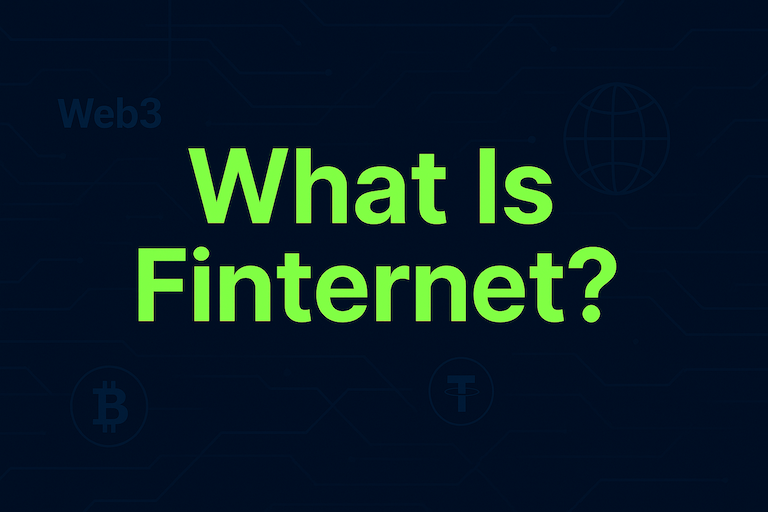What Is a Crypto Miner? The Role of Mining in Blockchain
Jun 12, 2025
Cryptocurrencies like Bitcoin and Ethereum have become buzzwords in the digital age, but behind these digital assets lies a crucial process known as mining. If you've ever wondered what a crypto miner is or how mining contributes to blockchain technology, you're not alone. This article breaks down the concept of crypto mining in an easy-to-understand way, especially for beginners.
Whether you're curious about how new coins are created or how transactions are verified on decentralized networks, understanding the role of a crypto miner is essential. Let's dive into the world of mining and uncover its importance in the blockchain ecosystem.
What Is a Crypto Miner?
A crypto miner is an individual or entity that uses computing power to validate transactions and secure a blockchain network. In return for their work, miners are rewarded with newly created cryptocurrency and transaction fees.
In simpler terms, think of a crypto miner as a digital accountant who ensures that all transactions on a blockchain are accurate and tamper-proof. This process is critical to maintaining trust and transparency in decentralized systems like Bitcoin.
How Does Crypto Mining Work?
Crypto mining involves solving complex mathematical puzzles using powerful computers. These puzzles are part of what's called a consensus mechanism — most commonly Proof of Work (PoW) — which ensures that all participants in the network agree on the current state of the blockchain.
Here’s how it typically works:
A user initiates a transaction (e.g., sending Bitcoin).
The transaction is broadcast to the network.
Miners group multiple transactions into a block.
To add this block to the blockchain, miners must solve a cryptographic puzzle.
The first miner to solve it shares their solution with the network.
Other nodes verify it, and if valid, the block is added to the chain.
The successful miner receives a reward (block reward + transaction fees).
This process repeats every few minutes, ensuring continuous validation and security of the blockchain.
Types of Crypto Mining
There are several types of crypto mining methods based on hardware setup and scale:
CPU Mining: Uses regular computer processors; mostly outdated due to low efficiency.
GPU Mining: Utilizes graphics cards; more powerful than CPUs for parallel processing tasks.
ASIC Mining: Application-Specific Integrated Circuits designed solely for mining; highly efficient but expensive.
Cloud Mining: Renting mining power from remote data centers; convenient but comes with trust risks.
Mining Pools: Groups of miners combining resources to increase chances of earning rewards; profits are shared proportionally.
Each method has its pros and cons depending on cost, complexity, and potential returns.
Key Features and Benefits of Crypto Mining
Crypto mining plays several vital roles in blockchain networks:
Transaction Validation: Ensures that all transactions are legitimate and prevents double-spending.
Network Security: Makes it extremely difficult for bad actors to alter past transactions due to high computational requirements.
Decentralization Support: Eliminates reliance on central authorities by distributing power among many miners.
Coin Issuance: Introduces new coins into circulation in a predictable manner.
These features make mining an indispensable part of many cryptocurrency ecosystems.
Real-World Applications and Use Cases
Crypto miners contribute significantly beyond just earning rewards:
Supporting Payment Networks: Miners help confirm payments made using cryptocurrencies like Bitcoin.
Powering Decentralized Finance (DeFi): Many DeFi platforms rely on secure blockchains maintained by miners.
Enabling Smart Contracts: On networks like Ethereum (before its transition to Proof of Stake), miners executed smart contracts automatically when conditions were met.
Promoting Financial Inclusion: By securing open-access networks, miners support global financial services without intermediaries.
These applications highlight how crypto mining underpins much of what makes blockchain technology revolutionary.
Getting Started with Crypto Mining
If you're interested in becoming a crypto miner, here’s a simplified roadmap:
Choose Your Coin: Decide which cryptocurrency you want to mine (e.g., Bitcoin, Litecoin).
Select Hardware:
For beginners, GPU mining may be more accessible than ASICs.
Install Mining Software: Examples include CGMiner or NiceHash depending on your setup.
Join a Mining Pool (optional): Collaborate with others for more consistent earnings.
Set Up Wallet: Store your mined coins securely using wallets that support private keys and seed phrases.
Monitor Performance & Costs:
Keep track of electricity usage vs potential rewards.
Remember that profitability can vary widely based on hardware costs, energy prices, and market conditions.
Security Considerations
While crypto mining itself is generally secure within reputable blockchains, there are some important factors to keep in mind:
Malware Risks: Some malicious software can hijack your device's computing power for unauthorized mining (cryptojacking).
Hardware Vulnerabilities: Poor cooling or overclocking can damage equipment over time.
Scams in Cloud Mining Services: Be wary of platforms promising guaranteed returns; always do thorough research before investing resources.
Regulatory Compliance: In some regions, crypto mining may be subject to legal restrictions or require specific permits.
Using secure wallets with private key protection and choosing reliable software can greatly reduce risks associated with crypto mining activities.
Conclusion
Crypto miners play an essential role in maintaining trust, transparency, and functionality within blockchain networks. By validating transactions and securing decentralized ledgers through computational work, they enable cryptocurrencies like Bitcoin to operate without centralized oversight.
Now that you understand what a crypto miner does and how mining supports blockchain technology, you're better equipped to explore this fascinating aspect of the digital economy. Whether you're considering entering the world of mining or simply expanding your knowledge base, always prioritize learning through secure channels and compliant platforms—those that offer robust security measures, regulatory licensing, and transparent operations.
As you continue your journey into cryptocurrency, remember that knowledge is your most valuable asset!
Start your safe cryptocurrency journey now
Fast and secure deposits and withdrawals, OSL safeguards every transaction !


